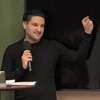advise
Three tips for researchers who want to provide advice in a crisis
Anders Tegnell at Folkhälsomyndigheten became one of the most well-known experts during the covid 19-pandemic in Sweden. Photo: Frankie Fouganthin/Wikimedia. In crises, politicians often turn to expert
A broken process - the Swedish health care system asks for expert advice
Scandinavian Journal of Public Administration, vol. 27. No. 2, p. 57–70. Abstract This paper analyses the process in which expert reports on health care governance are commissioned, produced and receive
Applying spatial regression to evaluate risk factors for microbiological contamination of urban groundwater sources in Juba, South Sudan
Hydrogeology Journal 25(4) pp. 1077-1091, doi: 10.1007/s10040-016-1504-x Abstract This study developed methodology for statistically assessing groundwater contamination mechanisms. It focused on microbiahumanitarian aid organisation Médecins Sans Frontières in 2010. The factors included hydrogeological settings, land use and socio-economic characteristics. The results showed that the residuals of a conventional probit regression model had a significant positive spatial autocorrelation (Moran’s I =3.05, I-stat = 9.28); therefore, a spatial model was developed that had better goodness-of-fit to the observations. The mostsignificant factor in this model (p-value 0.005) was the distance from a water source to the nearest Tukul area, an area with informal settlements that lack sanitation services. It is thus recommended that future remediation and monitoring efforts in the city be concentrated in such low-income regions. The spatial model differed from the conventional approach: in contrast with the latter case, lowland topography was not significant at the 5% level, as the p-value was 0.074 in the spatial model and 0.040 in the traditional model. This study showed that statistical risk-factor assessments of groundwater contamination need to consider spatial interactions when the water sources are located close to each other. Future studies might further investigate the cut-off distance that reflects spatial autocorrelation. Particularly, these results advise research on urban groundwater quality.
Implications of climate change for policing practice worldwide
Venue: Institute for Futures Studies, Holländargatan 13 in Stockholm, or online Welcome to a seminar arranged in collaboration with two visiting researchers from the Hague University of Applied Science,

Karim Jebari: The social impact of AI - Inspirations on what to explore and how to aviod the hype
Karim Jebari, PhD in Philosophy and researcher at the Institute for Futures Studies talks about some tools for finding interesting things to study in the field of the social impact of artificial intelligence. And also, advice on how to avoid some of the hype surrounding AI. From the workshop “Why we need research on AI impact now”, that was held at the Institute for Futures Studies on January 21st 2020.

Katarina Engberg
I hold a PhD in Peace and Conflict Research (Uppsala University), and a Master in Public Administration, MPA (Harvard Kennedy School). I have been a Fellow and research associate with Weatherhead Cent
Following the Science: Pandemic Policy Making and Reasonable Worst-Case Scenarios
LSE Public Policy Review, 1(4), p.6. 2021 Abstract The UK has been ‘following the science’ in response to the COVID-19 pandemic in line with the national framework for the use of scientific advice in as
Estimating Social and Ethnic Inequality in School Surveys: Biases from Child Misreporting and Parent Nonresponse
European Sociological Review 31: 312-25. Abstract We study the biases that arise in estimates of social inequalities in children’s cognitive ability test scores due to (i) children’s misreporting of soci

Lorne L. Dawson: Reconceptualizing Lone-Actor Terrorists as Solo Public Mass Murders
Lorne L. Dawson, Professor Emeritus, University of Waterloo, Canada. In public and expert judgements of whether an incident of mass violence by a lone actor is an instance of terrorism or simply mass m

Research seminar with Maja Fjaestad: Post-pandemic reflections on leadership and preparedness: Crises management and the concept of “following science”
Venue: Institutet för framtidsstudier, Holländargatan 13, 4th floor, Stockholm, or online.Research seminar with Maja Fjaestad, IFFS researcher, expert coordinator at the Center for Health Crises at KI








